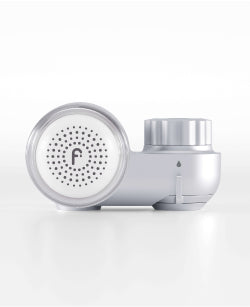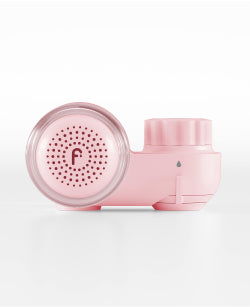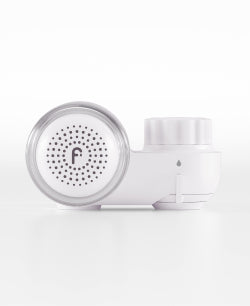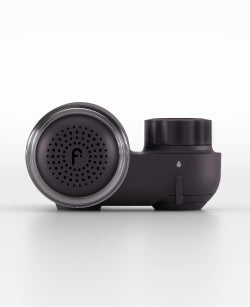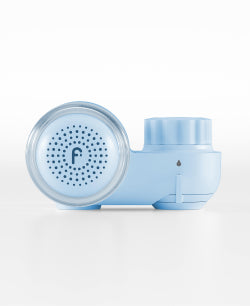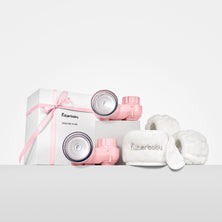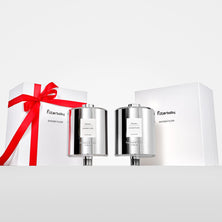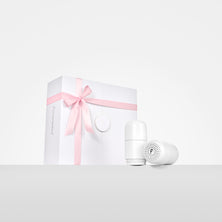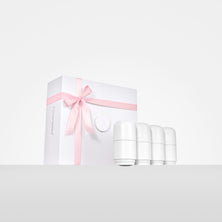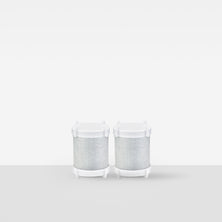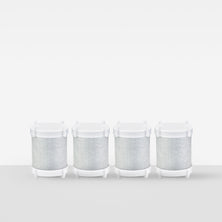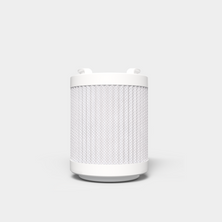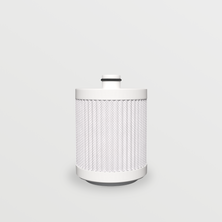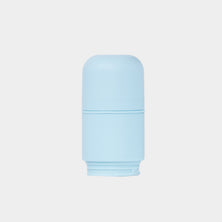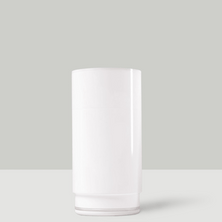Guest Post. by: Dr. Liz Aguiniga, PH.D Life Sciences
Access to clean water is essential for keeping the body healthy. Not only is it important to drink highly purified water, but it turns out that using impure water to wash the skin can create serious skin issues.
Water Impacts the Skin’s Barrier Function
What is hard water? When water has high levels of calcium and magnesium it is called hard water and when the water has lower levels of calcium and magnesium it is called soft water. Drinking those minerals is fine but washing with those minerals is a different story.
Sometimes when an individual washes their hands with hard water, they may notice a film of soap residue remaining on their hands. Or when they wash a glass in hard water, they may notice that the glass does not look clear. That film or soap scum that stays on the hands and glass, can cause issues.
Dr. Danby's study showed that using hard water to wash skin resulted in higher levels of surfactant (the chemical used in wash products) deposits on the skin compared to soft water, and actually impacted the skin’s barrier function. In simple terms, impure water decreases the skin’s ability to effectively keep out what it needs to keep out.
Furthermore, chlorine is often used in water systems to disinfect drinking water from parasites, bacteria, and viruses. Dr. Danby’s study found that high chlorine levels increased redness or skin irritation.
The Impacts of Impure Water on Skin Conditions
While studies have not shown that hard water causes atopic eczema, children who live in areas with hard water develop atopic eczema at higher rates and hard water can worsen symptoms of atopic eczema. Similarly, people with atopic dermatitis are also more susceptible to skin issues when exposed to hard water. Specifically, they are more likely to have surfactant deposits when they wash with hard water and are more likely to have skin barrier dysfunction as a result of those deposits compared to healthy people. Chlorine may induce contact dermatitis and have a negative temporary effect on the skin’s barrier function.
How Water Filtration Can Help
The skin is the largest organ in the body and is essential for acting as a barrier between outside world stressors such as sunlight, bacteria, or chemicals and the inside of the body including the organs, blood, water, etc. Using a water purifying system such as Filterbaby PROdermis can help maintain healthier skin and maintain the skin’s barrier function.
The Filterbaby system includes not only a carbon fiber filter and a hollow fiber membrane to remove the smallest of particles (up to 0.1-0.2 microns), but it also includes PROdermis technology to reduce the magnesium and calcium in water, to reduce the hardness. The Filterbaby water purifying system that can be directly added to the faucet can be used reduce chlorine, lead, minerals, and microplastics to properly take care of delicate skin and keep you looking your best.
References
- Hardness of Water - United States Geological Survey: Water Science School
- The effect of hard water on surfactant deposition after washing and subsequent skin irritation in atopic dermatitis patients and healthy subjects- Journal of Investigative Dermatology
- Disinfection with Chlorine and Chloramine - Centers for Disease Control
- Water hardness and possible genetic link with eczema in children.
- The effect of water hardness on atopic eczema, skin barrier function: A systematic review, meta-analysis - Clinical & Experimental Allergy
